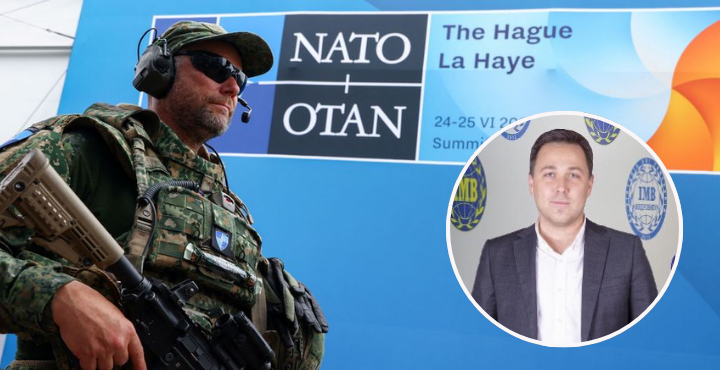Mykola Kapitonenk, Associate Professor of the Department of International Relations and Foreign Policy, published an article entitled "Spend or Splinter?

"NATO will not be able to operate as it has in the past. The new realities require addressing broader issues than simply increasing defence spending," the author notes.
The article outlines the main aspects of the modern international security system. The author emphasises that the pandemic, full-scale war in Europe, global redistribution of power, China's growing influence and the crisis in the West create preconditions for rethinking the architecture of modern international security.
Wealth, which has traditionally been the basis of the power of modern states, is now more widely distributed and no longer concentrated exclusively in the West. Ten years ago, China surpassed the United States in terms of GDP at purchasing power parity, and since then the gap has only grown. Five years ago, the BRICS countries surpassed the G7 countries in terms of their share of the global economy, signalling a shift in the economic centre of gravity. As a result, the world is becoming increasingly polarised, and tensions between major powers are intensifying, shaping a new configuration of global security.
In addition, according to Mykola Kapitonov, Europe finds itself in a difficult situation due to the intensification of conflicts between major powers. The EU's weakness in foreign policy and security has become particularly evident as the world returns to a paradigm of realism. In practice, instead of the EU, individual major European powers — Germany, France, Italy, Poland, and sometimes the United Kingdom — are active in security matters. However, their strategic interests differ significantly, which prevents the formation of a coherent and effective policy to protect European interests.
The author pays particular attention to the issue of Ukraine's membership in NATO. A realistic analysis shows that Ukraine has always been far from the real prospect of accession, and the rhetoric about NATO's "open door", which was in fact closed, was largely symbolic. In 2025, it becomes clear that the problem goes far beyond the position of individual countries, in particular Hungary. It is a matter of the fundamental unwillingness of both European allies and the United States to take on the risks associated with Ukraine's integration into the Alliance.